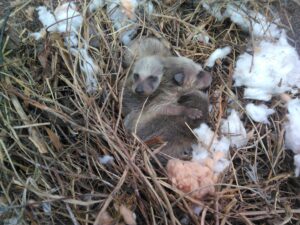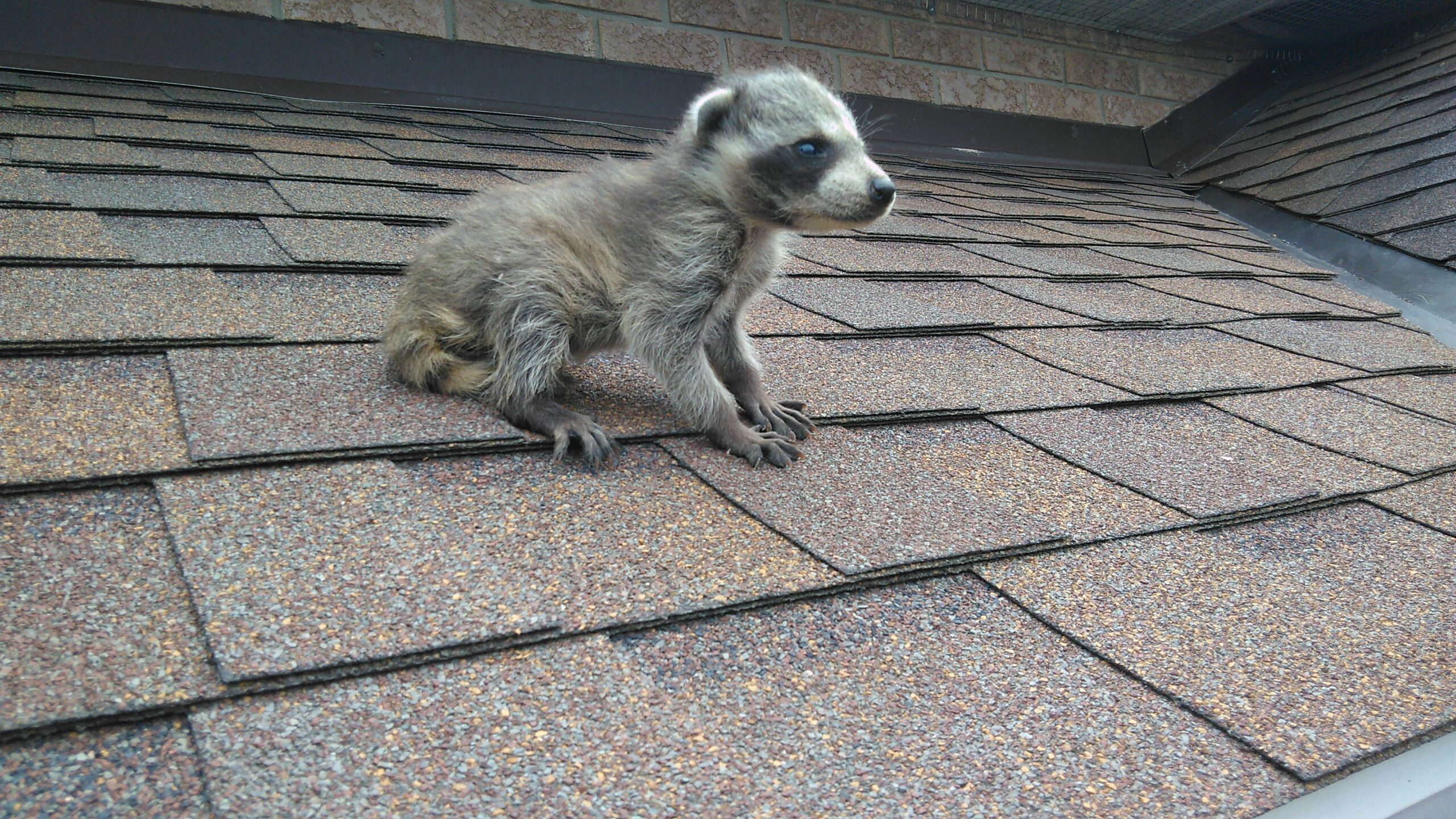Mother Nature’s yearly miracle occurs in spring when many mammal species have babies. This is to give little ones the chance to grow up in pleasant weather and to learn to be independent before winter. It’s also the time of year when you might find wildlife babies who may appear to be orphaned. When you are dealing with adult wildlife, whether squirrels, raccoons or skunks, you should always get professional assistance with Milwaukee raccoon removal. With baby raccoons, before touching or disturbing them, you should make sure that the baby is truly orphaned. Most wildlife specialists recommend that babies be left undisturbed unless you’re very sure that the baby is orphaned or injured.
Signs that Indicate a Raccoon is Orphaned
The first thing is to make sure you’re really dealing with a baby raccoon. Newborns and babies under two to three weeks will have a raccoon mask and striped tails, but the fur may be very thin. As the baby ages, it will appear much like an adult raccoon with the traditional markings. If the raccoon is about the size of a house cat, it is old enough to take care of itself. Adult raccoons found in the wild should be left alone.
Mother raccoons leave their kits alone while they forage for food. Sometimes, the mother moves the babies from one location to another. Raccoon babies explore their surroundings when mom is gone. They can easily get dislocated from their nest. Even though the babies are left alone, they are rarely orphaned, unless the mother is killed or relocated. Mother raccoons are very protective and will search high and low to find their babies. Relocating an adult raccoon, especially in the spring, when babies are a possibility, is best left to the experts. Wildlife removal specialists make sure to remove the babies from a home, place them as close to the den as possible, and then allow the mother to relocate the family together to keep the mother from causing further damage.

If you do come across a baby raccoon, here are some signs that it may be orphaned:
- The baby is injured.
- The baby cries incessantly. Some crying is normal, but the baby doesn’t stop.
- The baby is cold, dehydrated or appears ill.
- The baby has insects, flies, fleas or ants.
Teach your children to leave wildlife alone, even when it appears to be in distress. A baby raccoon could have unseen injuries or be carrying a disease. No matter what kind of wildlife is in your yard, it’s better to call a company with wildlife removal experience than to get hurt yourself.
What To Do If You Have an Orphaned Raccoon
If you see a baby orphan raccoon, the best thing to do is to wait and see if the mom returns. Raccoons are nocturnal, so you may have to wait until night time to check if the mother has retrieved her babies. To give the baby a good chance for a reunion, keep your pets and children away from it. Baby raccoons don’t usually move too far from the nest on their own. Expect mom to return when she feels safe. The mother’s instinct is strong.
If the babies are not retrieved by morning, they are likely abandoned. You should call a licensed professional wildlife rehabilitation center or a wildlife removal service to help you with removal. Baby raccoons, although tiny and possibly weak, can still carry rabies and other diseases. They will bite and scratch, which could leave you vulnerable or injured. Raccoons should not be raised as pets. In some places, it’s illegal to raise an orphaned animal. Ask the wildlife removal company for instructions on how to proceed.
Have you found a baby raccoon? Contact Skedaddle Wildlife Removal and let us deal with the problem safely and humanely. We will make sure that there are no other babies left in the area to prevent damage to your home.




